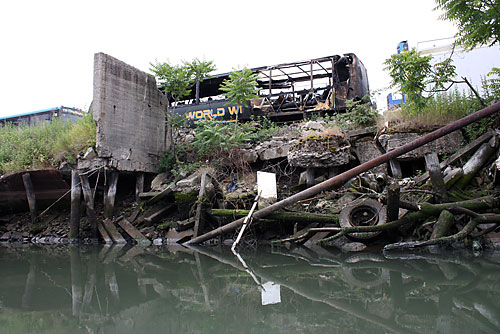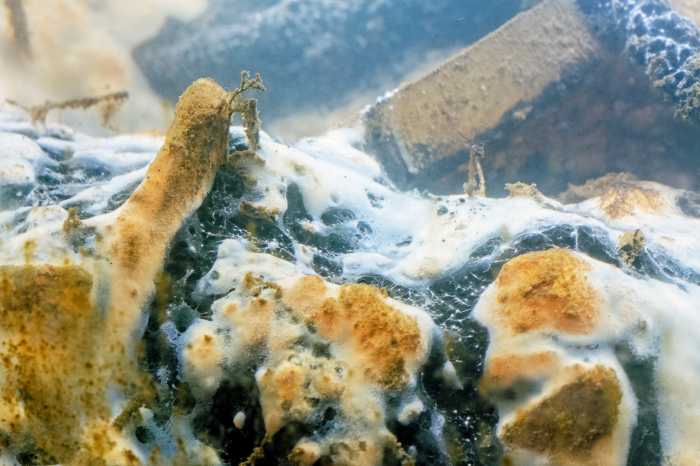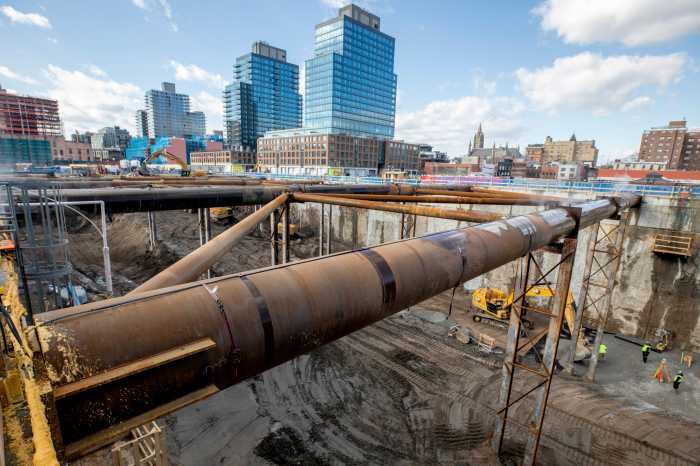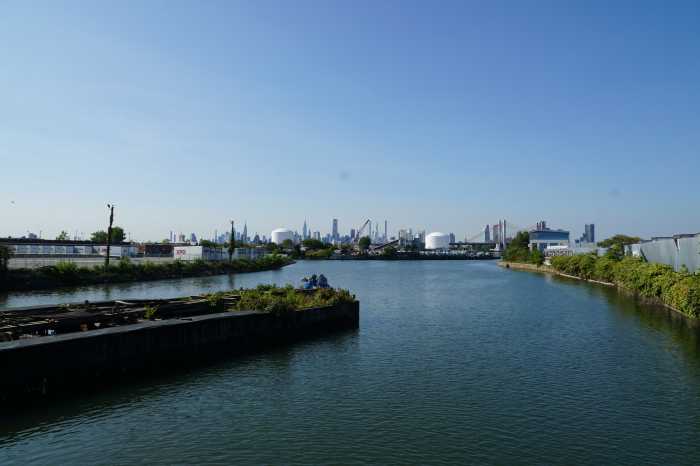The owner of a commercial bus depot along the Gowanus Canal dumped trash and motor oil into the already toxic waterway — and now he’s going to pay for the damage, state officials said this week.
The Department of Environmental Conservation slapped Jacob Marmurstein with a $482,750 fine, claiming that his MCIZ Corporation repeatedly contributed to the befouled canal’s general nastiness, and ordered Marmurstein to plug his leaky oil tanks and clean up the mess at his bus yard and garage near Sixth Street.
“The yard has been the site of several petroleum spills, and repeated violations of New York State law governing petroleum bulk storage, tidal wetlands, water quality and solid waste,” said agency spokesman Thomas Panzone.
And there’s incentive to do the job right. If it cleans up its act, the company will get $125,000 shaved off his bill, Panzone noted.
State officials said photographic evidence provided by Riverkeeper, an environmental watchdog group, documented some of the violations.
Josh Verleun, the group’s chief investigator and staff attorney, said the brazen dumping amounted to a “willful disregard of the law.”
Marmurstein did not a return a call for comment. The bus yard is home to tour buses and airport shuttles, which oversee a canal so wretched the Environmental Protection Agency recently branded it one of the most polluted waterways in the country when it declared the sluice a toxic Superfund site last year.
In 2009, Riverkeeper threatened a civil suit against Marmurstein and two other polluters. The two companies made changes, but MCIZ did not, Verleun said. “This was very egregious,” he added.
Federal officials, who are embarking on their own 11-year, $500-million clean-up of the waterway, said they expect their Albany counterparts to handle this mess, which is a violation of state law, and not related to the feds bigger headache: chasing down polluters responsible for over a century’s worth of toxins that have seeped deep into the sediment — and then cleaning it up.
“The Environmental Protection Agency anticipates that the actions laid out in the order will lead to the stoppage of pollution,” spokesman John Senn said.
























